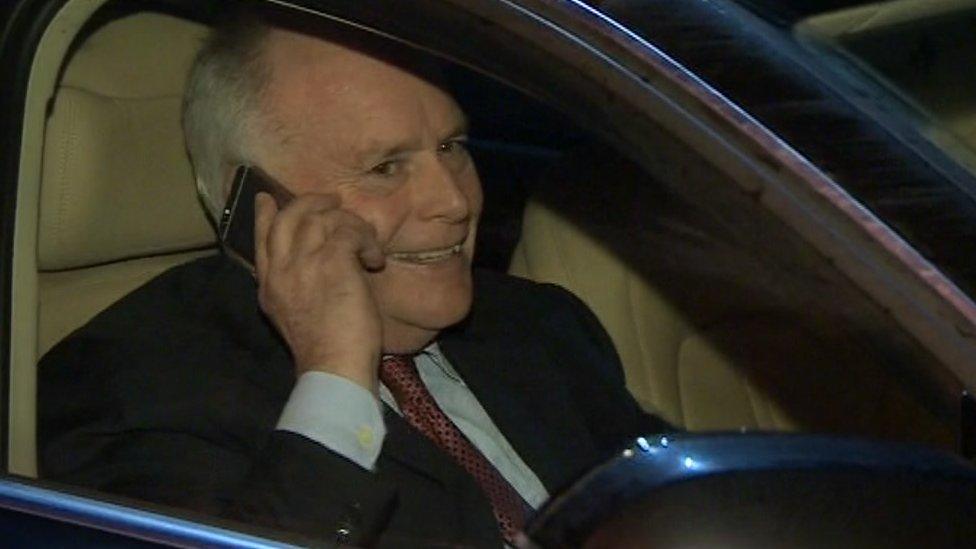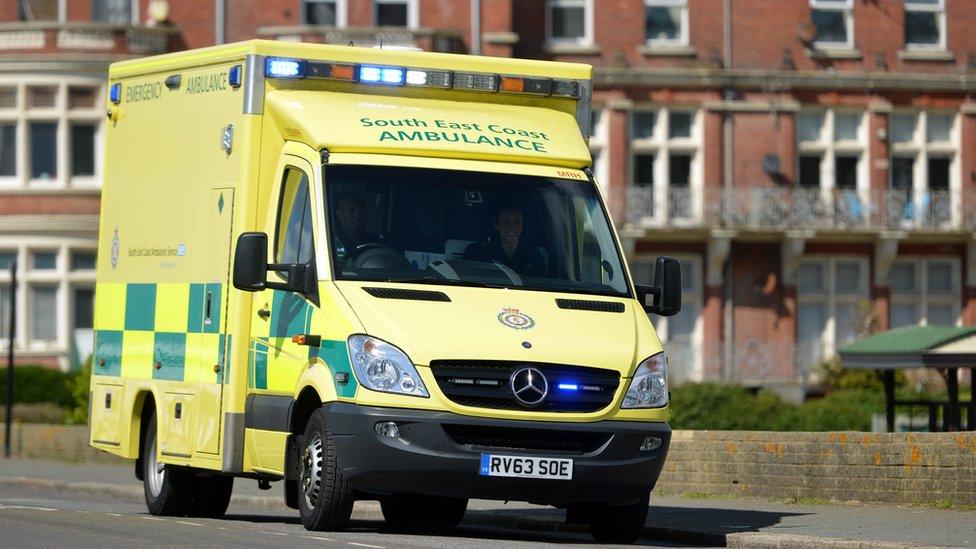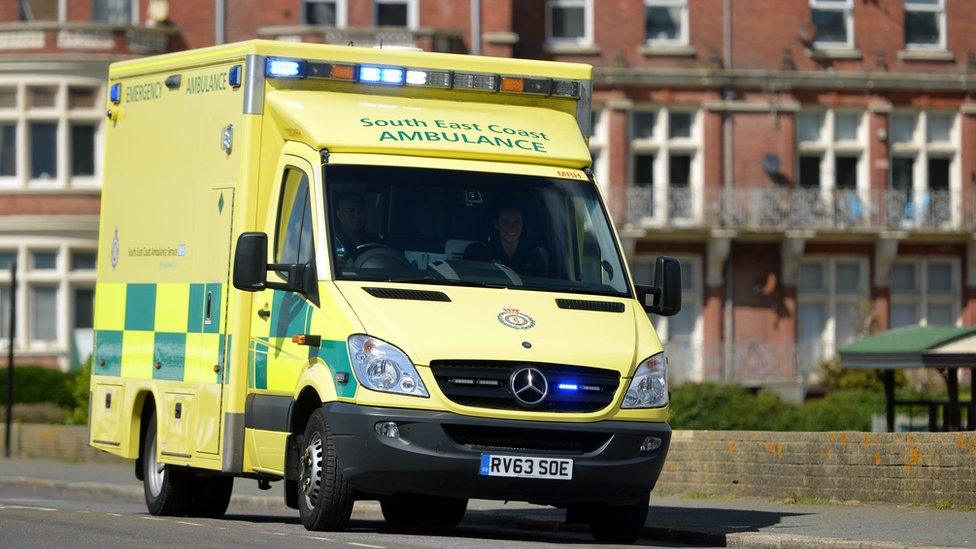Ambulance chairman in NHS 111 calls row resigns
- Published

The reasons for Tony Thorne's resignation are not known
The chairman of the scandal-hit South East Coast Ambulance Service (Secamb) Tony Thorne has resigned, the BBC understands.
Last October it emerged the trust had delayed sending help for certain calls to allow extra time for patient assessments.
The reasons for Mr Thorne's resignation are not known.
It is also understood chief executive Paul Sutton will take a leave of absence from the trust.
Mr Thorne's resignation from Secamb, which has been under pressure for months, follows a crisis meeting of bosses at the trust.

Secamb gave itself an extra 10 minutes to deal with some potentially life-threatening calls
Last October it emerged Secamb, which covers Kent, Surrey, Sussex and North East Hampshire, delayed sending help for certain 111 calls, transferring them instead to the 999 system as part of a pilot project.
It did this to re-assess what type of advice or treatment patients needed and whether an ambulance was really required.
The trust defended the project but acknowledged the "serious findings" of a report into the practice.
At the time, health regulator Monitor said the trust had not fully considered patient safety.
It said the project was "poorly handled" and there were "reasonable grounds to suspect that the trust is in breach of its licence."
It added a condition to Secamb's licence so that if insufficient progress was made the leadership team could be changed.

How call handling was changed
Secamb provides NHS 111 services across the region and responds to 999 calls.
Some 111 calls were transferred to the 999 system to give Secamb more time for more urgent calls.
The calls affected were in the second most serious category - Category A Red 2 - which covers conditions like strokes or fits but which are less critical than where people are non responsive.
Under NHS rules, calls designated as life-threatening are supposed to receive an ambulance response within eight minutes.
The trust allowed itself an extra 10 minutes to deal with some calls by "re-triaging" patients in the 999 system.

Analysis by Mark Norman, BBC South East health correspondent
Many people I have spoken in the trust say the pilot project was a good idea.
But managers didn't tell anyone about it and in the past they have held their hands up and admitted mistakes.
What next? In the next 24 or 48 hours we expect the first of three reports into what happened.
That will look at who knew what and when.
Later this summer the third report will review the impact on patients.
But for now a trust that employs more than 3,600 staff and handles almost 900,000 emergency calls a year is facing an uncertain future.
- Published1 March 2016

- Published5 November 2015

- Published30 October 2015

- Published4 November 2015

- Published3 November 2015
